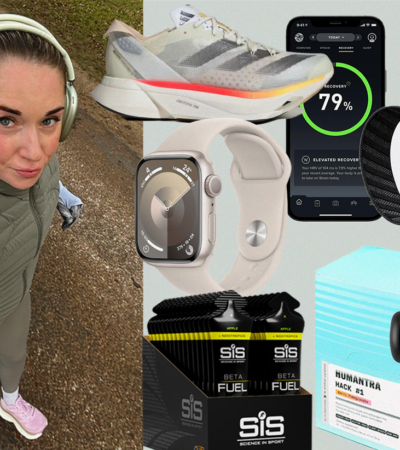Worried about coronavirus? You’re not alone. Dr Jenna Macciochi, immunologist, shares her top tips on why you should focus on balancing your immune system rather than boosting it.
When it comes to maintaining good health, the immune system is our most precious asset. A silent wonder. Yet we rarely appreciate our essential defences until something goes wrong. Most of the time our immune system works quietly away and we don’t even notice it. Deeply entwined with every aspect of our physical and mental health, it acts as a fortress and lays the foundations of our health and longevity.
Immunity is something that is made, not born. Built over time from birth. It is a sensing system, and I often like to think of it as our sixth sense. It requires inputs from our environment, emotions and experiences and how well it functions is the product of what we do ‘most’ of the time, not short-term fixes. Crucially, it is as unique to us as our fingerprints – and with good reason. We all might know those people who never seem to get sick and wonder what their secret is. For the most part, there is no secret. Some of us might be more susceptible to colds, while others fare worse with other types of infection. It’s our collective diversity that matters most as this diversity helps sustain the human race: if our immune defence systems were identical, a single deadly disease could wipe us all out.
Searching ‘immunity’ online or among the aisles of health-food stores reveals an abundance of nutritional supplements, cold remedies and fortified foods all promising to ‘boost’ our immune system. But is there any scientific truth in these claims? Because the immune system is often responsible for those annoying symptoms we experience when we get sick, it comes with its own counter measures to buffer its infection fighting inflammatory response. This means that boosting immunity makes little sense scientifically. Immunity needs balancing, not boosting. So, the bad news is that there is no magic pill or miracle broth that will ‘boost’ our immunity overnight. The good news is that there are many ways we can give our immune system the best possible chance of operating at its optimum level.
Get some sunshine. Never has getting outside been more important as we spend more and more time in front of our computers! This helps us keep our vitamin D levels up plus getting fresh air in the great outdoors has been shown to have additional immune nourishing effects including stress relief! The air we breathe carries bacteria, which together with organisms that come mostly from soil and plants, are deposited in our mouths and airways as we breathe and swallow which contribute to the health of our microbiota.
Cold water swimming. Perhaps not everyone’s cup of tea, but habitual sea swimmers have been shown to have lasting positive effects with regards to staying well and catching less germs. Studies are still in the early stages and we are only just starting to understand how cold water immersion affects the human body but it is thought that the short term stress of being in cold water can actually help you manage stress in other areas of your life.
Sleep on it. One of our least valuable cliches is that we can sleep when we die. Much truer is: if we don’t sleep, we will die – sooner. While more sleep won’t necessarily make us invincible, lack of sleep almost immediately tips our immune system into imbalance, simultaneously dampening parts of it and empowering others. If you’re a new mum, you may be thinking how on earth you can tick this box with the inevitable night time wake ups. While, yes, sleeping at night is preferable, there are some studies to support that napping is helpful in topping up. So I’d encourage new mums to get on board with the old “sleep when baby sleeps” method.
Mental health matters. While stress mostly gets a bad rap, it’s not all negative. It is a physiologically normal and useful response. But is it short term (acute) by design. Cortisol, the key stress hormone has an immune dampening effect on immunity. Sustained ‘chronic’ stress is a fairly recent invention and our immunity isn’t designed to cope with it. When acute stress becomes a chronic long term issue in our lives, it becomes an immunity problem. It can send unruly inflammation haywire and leave us open to infection.
Eat diversely. The best way to ‘eat for immunity’ is to balance calories and ensure you get plenty of good fats, fibre, quality carbs, diverse protein sources and phyto-nutrients (biologically active chemical compounds found in plants). Variation and diversity is key in providing your gut with lots of different strains of good bacteria so try to avoid eating the same old meals and get creative with different recipes.
words by Dr. Jenna Macciochi
Based in Brighton? Book a consultation with Dr Jenna here.














